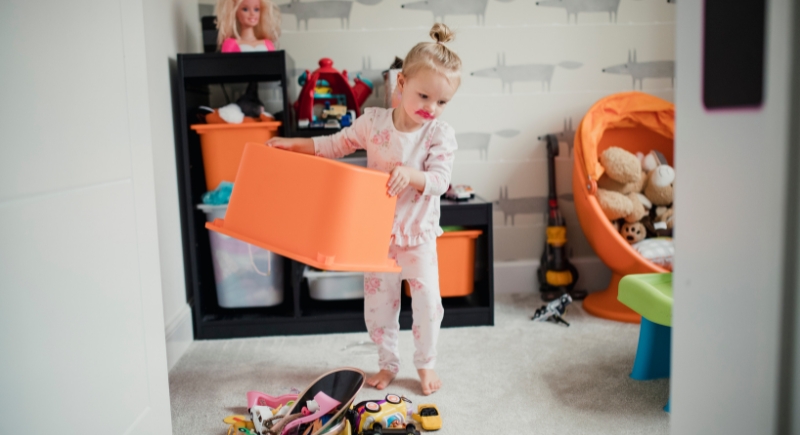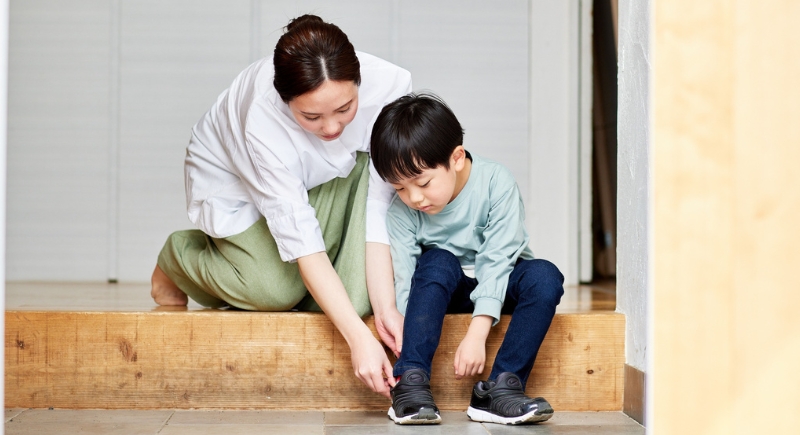Common phrases psychologists say that can harm your child
Parents don’t always realize the weight their words carry. Some phrases seem minor in the moment, but can shape how a child sees themselves for years. Psychologists believe it’s not just yelling that causes harm, but the daily, repeated remarks that slowly impact self-worth and trust.
Here are a few that may sound familiar, but they come with long-term consequences.
You Always Mess Things Up

Credit: Getty Images
Kids tend to absorb messages about themselves as facts. When they hear they “always” mess up, they start believing they’re inherently incapable. That belief mostly leads to learned helplessness, where they stop trying altogether. This mindset can follow them into school, friendships, and eventually adulthood.
Stop Crying, It’s Not a Big Deal

Credit: Getty Images
If you tell a child not to cry, you shut down their emotional processing. Research shows that when children repeatedly experience emotional invalidation, they tend to struggle to regulate their emotions later in life. This is why responding with something like, “I see this is hard for you,” gives the child acknowledgment without shame.
Because I Said So

Credit: Canva
Parents repeat these words when they’re tired or overwhelmed, but they provide them with no insight or guidance. Studies on parenting styles show that children raised in environments with unexplained authority end up developing lower problem-solving skills and less trust in adult direction.
I Don’t Have Time for This

Credit: Getty Images
A better way to respond is by saying, “I really want to hear about this—can you give me five minutes to finish up?” That kind of reply balances honesty with care. It shows your child that their thoughts matter, even when you’re short on time. Snapping “I don’t have time for this” might be efficient in the moment, but it sends a dismissive message.
Why Can’t You Be More Like Your Sister?

Credit: pixabay
You might want your child to put more effort into school, help more around the house, or show better manners in public. In those moments, it’s easy to respond with things like, “Why can’t you be more like your sister?” or “Your brother never acts like this.” But these comparisons typically backfire and create frustration and insecurity.
That’s Stupid

Credit: Canva
This phrase often gets tossed out during moments of irritation, but it carries long-lasting effects. Children don’t easily separate their actions from their identity. When you call something they say or do “stupid,” they begin to associate that label with themselves. It discourages creative thinking and discourages questions.
You’re Too Sensitive

Credit: Canva
Criticizing a child’s emotional response won’t make them less sensitive, but it will surely make them conceal their feelings. Young ones who hear this begin to hide their reactions and think they’re wrong to experience things deeply. Over time, they might become emotionally withdrawn.
Let Me Do It

Credit Aflo Images
It’s tempting to jump in when your child fumbles with a task, especially when you’re in a hurry. But taking over too soon robs them of the chance to practice independence. Psychologists emphasize that early mastery builds confidence. So, try coaching them and tactfully say, “I see you’re trying hard—can I show you a trick that might help?”
You’re Just Like Your Father/Mother

Credit: Getty Images
Most people want to hear they resemble a parent, but not when it’s framed as an insult. Telling a young one, “You’re just like your father” or “That’s your mother in you,” with a negative tone, carries more weight. This is because it attaches past resentment to the child and confuses their sense of self.
If You Don’t Behave, I’ll Leave You Here

Credit: Getty Images
Threats like this may get instant results, but they plant seeds of insecurity. A child might stop trusting that you’ll protect them in moments of stress. Experts in attachment theory highlight the importance of safety and predictability. Children who feel secure are highly likely to develop confidence, resilience, and healthy relationships.
You Can Be Anything You Want

Credit: Getty Images
Although well-meaning, “you can be anything you want” can set unrealistic expectations. Not every opportunity is available to every child. It is recommended that you focus on effort, interest, and growth in place of open-ended possibilities. Encourage exploration without the pressure of becoming anything.
You’re Being Dramatic

Credit: pexels
Your child throws their backpack after school or cries loudly over a small argument. Your instinct would be to put an end to their restlessness, but stating “You’re being dramatic” is not the way to do it. Hearing this makes young ones feel mocked, which could lead them to withdraw permanently.
What’s Wrong with You

Credit: Canva
No one wants to listen to a question that is more like an accusation. Parents should be careful with such words because they suggest there’s something fundamentally wrong with the child, not just their behavior. It leaves little room for explanation or repair. Kids hear it and think they’ve disappointed you in some deep, permanent way.
You’re Breaking My Heart

Credit: Canva
According to research on parent-child dynamics, adults usually place the weight of their own expectations and emotional needs onto their children, sometimes without realizing it. Conveying heartbreak due to something your child does places the burden of your reaction on them. Psychologists call this pattern emotional enmeshment, and it’s closely linked to anxiety.
You’re Too Old to Be Acting Like This

Credit: pexels
At first glance, this might sound like a reminder to mature, but it often comes across as ridicule. Age-based shame discourages emotional growth. Keep in mind that development doesn’t happen on a fixed schedule, and kids regress under stress or fatigue. An effective approach would be, “Let’s take a moment to calm down together,” which supports regulation.